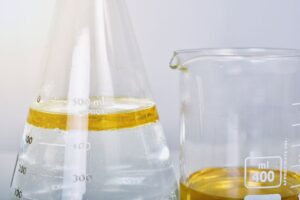Clean and safe drinking water is essential to good health, yet the need for purification systems has only increased over time due to environmental pollution and contamination of sources. In this blog article, we’ll address which purifier is better: RO or UV by looking at their advantages and disadvantages.
Understanding Reverse Osmosis (RO) Purifiers
How RO Purifiers Work
Reverse Osmosis (RO) purifiers utilize a semi-permeable membrane to filter out impurities, contaminants, and dissolved salts from water. As water flows through this filtering mechanism, only water molecules pass through it and effectively eliminating harmful contaminants.
Advantages of RO Purifiers
Removes dissolved impurities: RO purifiers effectively remove dissolved salts, heavy metals, and chemical contaminants.
Improves taste: By removing impurities, RO purifiers improve the taste of water.
Suitable for high TDS water: RO purifiers are ideal for areas with high Total Dissolved Solids (TDS) levels in the water supply.
Disadvantages of RO Purifiers
Wastage of water: RO systems produce a significant amount of wastewater, which can be a concern in water-scarce areas.
Removes essential minerals: Along with contaminants, RO purifiers also remove beneficial minerals from water.
High maintenance: RO purifiers require regular membrane replacement and maintenance, which can be expensive.
Understanding Ultraviolet (UV) Purifiers
How UV Purifiers Work
Ultraviolet (UV) water purifiers use UV-C light to kill or inactivate harmful microorganisms in water such as bacteria, viruses and protozoa. Water passes through a chamber that exposes it to UV light; exposure disrupts DNA of microorganisms so they no longer reproduce or cause infections.
Advantages of UV Purifiers
Chemical-Free Purification: UV purifiers use no harmful chemicals, making them environmentally friendly.
Effective against Microorganisms: UV purifiers have proven highly efficient at eliminating waterborne pathogens to ensure safe drinking water for consumers.
Low Maintenance Requirements: UV purifiers require minimal maintenance compare to any RO water purifier.
Disadvantages of UV Purifiers
Ineffective against dissolved impurities: UV purifiers do not remove dissolved salts, heavy metals, or chemical contaminants from water.
Conclusion:
When deciding which purifier is good for your health, RO or UV, it’s important to consider your water source and its specific contaminants. RO purifiers are ideal for areas with high TDS levels and effectively remove dissolved impurities, while UV purifiers are best for eliminating waterborne pathogens without using chemicals. For comprehensive water purification, consider a combination of both RO and UV technologies to ensure safe and clean drinking water.




